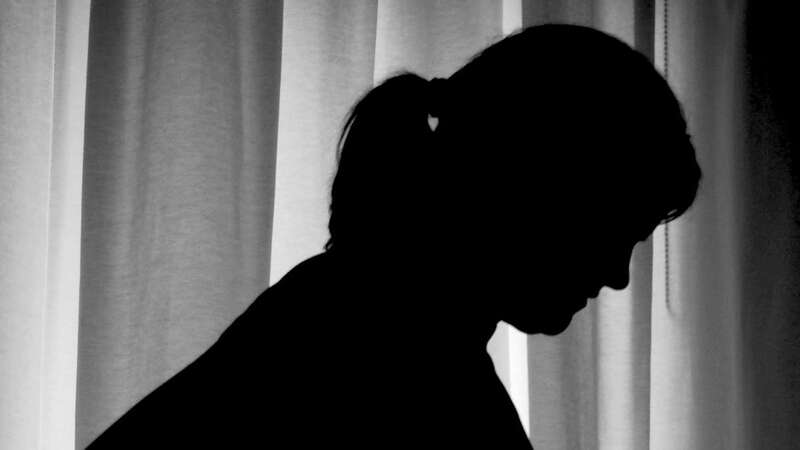

Prisons were branded "societal dustbins" with pregnant mums locked up and abandoned during labour, a fringe event at Labour conference heard today.
Councillor Kelly Grehan raised the case of baby Aisha Cleary, who was found dead in a prison cell in September 2019 after her 18-year-old mum was left alone for 12 hours and forced to cut the umbilical cord with her teeth. An inquest this summer found serious failings contributed to Aisha's death.
Ms Grehan, who was chairing the panel on maternal imprisonment, said "it's really important we remember her name, remembering the suffering that the system brought onto her and her mother". She referenced a 2007 report which said the effect of mothers going into prison was “nothing short of catastrophic” on their children. "What a shame that I can read that statement today and say that nothing has changed since that report came out. That report was applauded by every organisation you can think of, and yet nothing has changed," she said.
Labour Cllr Sara Hyde, who previously worked in Holloway’s women’s prison, said: “I could see so clearly we were using prisons as some kind of societal dustbin. There were people there who would have benefited from drug and alcohol support or a rehabilitation order in the community. People would have been better served by being on the secure mental health unit. But we've got such a crisis in secure mental health… massive delays there too. And so all these things are just like driving the need for better policymaking in these areas."
Mandy Ogunmokun, who founded female ex-offender accommodation charity Treasures Foundation, echoed her words, emphasising the need to better diagnose children’s and parents’ mental health issues. Opening up about her own story, she said: "I myself am an ex-offender, [was] in and out of children's homes, in and out of prison. I'm 63 years old and I've just been diagnosed with complex PTSD and it really saddens me that it wasn't picked up when I was a kid.
 Pregnant Stacey Solomon brands herself an 'old fogy' over NYE plans with Joe
Pregnant Stacey Solomon brands herself an 'old fogy' over NYE plans with Joe
"I’ve got all my paperwork from social services and it's quite evident that there were significant, horrific, problematic problems in my childhood. And what's really sad is that kids are just growing up and not knowing what the problem is because it's very deep inside. They've got severe mental health problems and can't get appointment."
She told the story of a woman visiting her charity who had given her baby up for adoption while suffering with mental health issues. "She didn't even know she had signed the paper. She's got mental health problems, and it wasn't picked up in the system," Ms Ogunmokun said. "She'd signed away her daughter and come out of prison and now was asking us: ‘When can I see my little girl?’ She didn’t even know that she'd signed away her daughter… The prison system is not equipped to deal with trauma, so I don't blame it on the officers. They're not equipped for that."
Mr Andy Keen-Downs, from the Prison Advice and Care Trust, said "there is a big question for me in policy as to why we even think it's appropriate to put pregnant women in prison". "I've heard all the stuff from the Ministry of Justice and the prison service about how they're improving but I also see the frontline every day. Our workers tell us what it's like. The level of support for pregnant women is not sufficient to keep them safe in prison," he said.
"In Mexico, in Italy, in Portugal, in Ukraine, and Colombia, it's illegal to put a pregnant woman in prison. What they do is they use electronic monitoring, house arrest, probation under supervision, a whole range of different practical things, which you can safely do because these women are typically not mad axe murderers, who are a massive threat to the public. So if we put them in prison, we are risking their lives and we're risking the lives of their children."
Mr Keen-Downs also said he has written to Justice Secretary Alex Chalk with concerns about plans to look at renting out foreign cells. “They're having a discussion apparently with the government of Estonia in order to see whether we can rent some prison cells. Now there are about 2,000 prison cells in Estonia and it's 1600 miles away. And meanwhile, the government has committed to… recommendations to keep people in prison close to their families… We're pointing out that this is really not a very sensible idea.”
Shadow Minister for Prisons Ruth Cadbury said it is “clear the current system isn’t working for anyone”. "In the 30 days since my appointment, it's been a true learning experience and I'll have a chance to listen to the experiences that you and others will bring," she said. "We're very open to discussion and listening to ideas and solutions, which focus on those working in prisons, those in prison themselves and those who are victims and, of course, the children of those in prison, because frankly, it's clear that the current system isn't working for anyone."
Ms Cadbury said she had written to the Department for Education and the Ministry of Justice with concerns about children with parents in prison. She said the response was "at best complacent", adding: “The children of those in prison have not even reached the state of being an afterthought for this government.”
* Follow Mirror Politics on , , and .